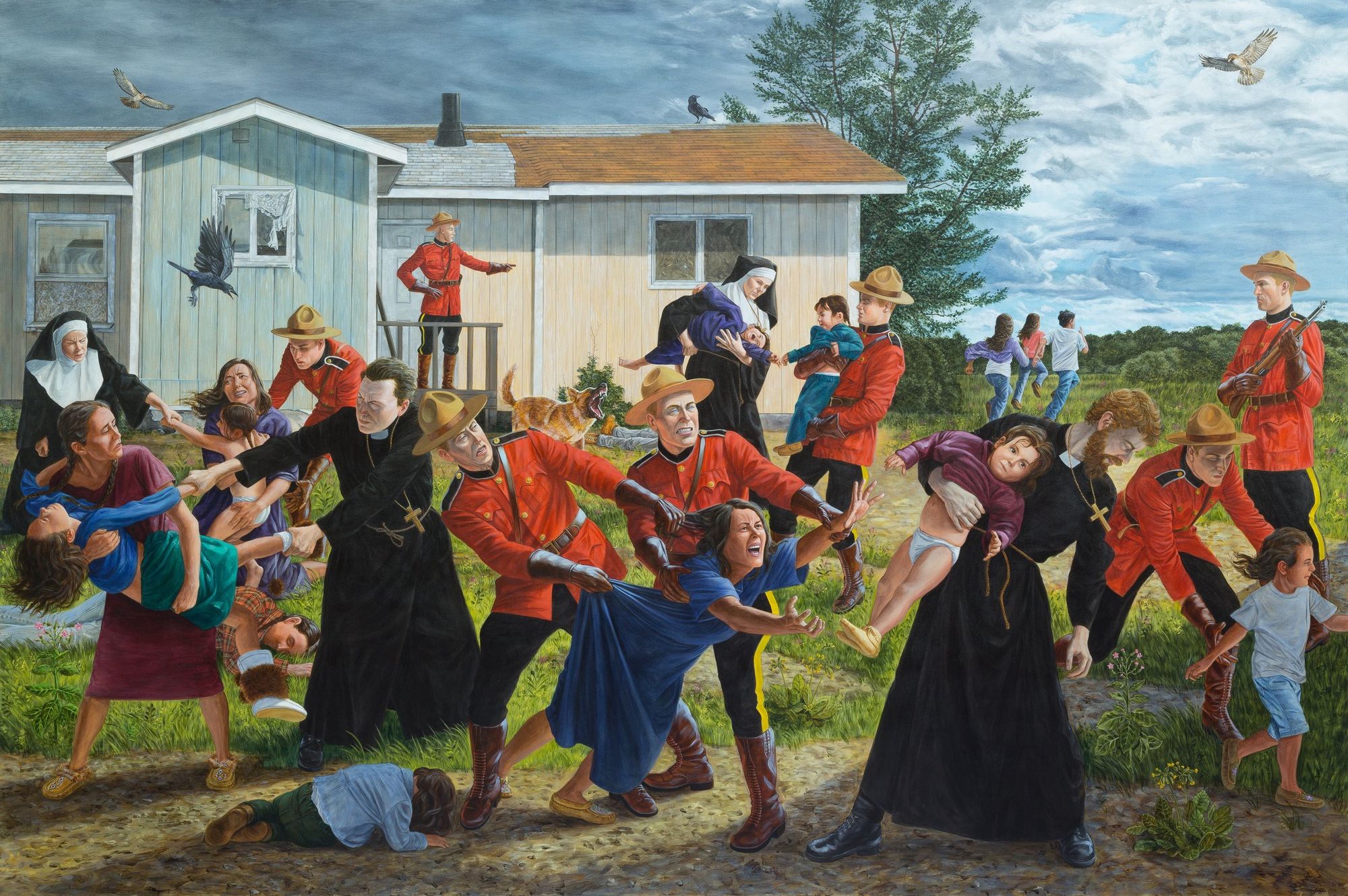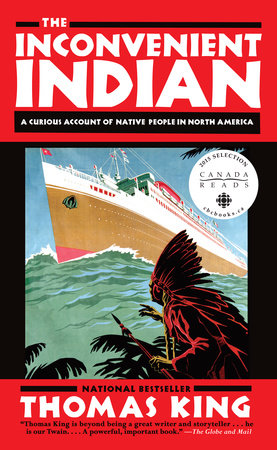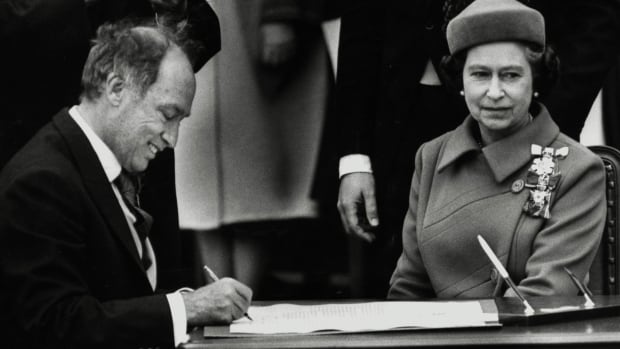Democracy in Canada
The Truth and Reconciliation Commission of Canada has held up a mirror and reflected back to us a very different image of ourselves than we had previously recognized or imagined.

The Scream by Kent Monkman, with permission from Kent Monkman Studio
A Curious Account of Multicultural Life in North America
Sociology
The thought occurred to me as I was listening to the Audible recording of Alexis de Tocqueville’s Democracy in America, particularly the chapter about race, that if I have anything worth writing about, it is my growing awareness of how race and difference matter. I would prefer to be blind to race, to see only human beings and celebrate our differences and our common life together. However, history has a way of reminding us of an ugly and inescapable past that has led to this particular place and time.
History
Meanwhile, I am reading the history of North America from the perspective of the First Nations, as we call the indigenous peoples in Canada. Indian, the term we used previously, says more about colonial ignorance and lack of empathy and care for the original inhabitants of the land we now occupy. Thomas King published a book in 2012 titled The Inconvenient Indian: A Curious Account of Native People in North America that documents a very different history from the stories we were taught in school.

Identity Politics
As I come to terms with my own identity, or lack there of, I find that race and difference are unavoidable as topics of consideration.
The social concepts of exclusion and inclusion are at the heart of this identity. I feel like I am only now waking up to a greater awareness of how my multicultural heritage has impacted my life so far. I am half English-Canadian and half Chinese. The intersection of cultures is the primary identity of Canada. Multiculturalism is our brand. Still, we are only now coming to terms with who we are and what we have done as a nation to get to this time and place.
Cultural Genocide
The Truth and Reconciliation Commission of Canada has held up a mirror and reflected back to us a very different image of ourselves than we had previously recognized or imagined. What we do about this knowledge is the question that continues to haunt us.
Ontology
I have neither the credentials nor the knowledge to take on a task such as this, but in the interests of better understanding myself and the world that I live in, I thought this might be an excellent place to start and a good motivation to move outside of my bubble and develop a broader perspective of our current reality.
Postmodern Deconstruction
While I take some inspiration from Alexis de Tocqueville and Thomas King, my perspective is very different. As a writer, I realize that this is the best that I can offer, that any writer can offer: a limited perspective and a point of view. I will be expanding and contracting my view, switching from a macro lens to a telephoto lens to a wide angle lens, as arbitrarily as memory and experience and imagination might allow. Our postmodern view point seems to favour this fragmentary montage of scenes and images that we have become accustomed to through a media diet that has evolved over time from Sesame Street and Scooby Doo to MTV and Much Music to movie theatre trailers to YouTube and Netflix, interrupted by the ubiquitous ads, commercials and marketing messages that dominate our public discourse and attention economy.
Spirituality
Be forewarned that the perspective I offer will require some forays into the mystical, spiritual and divine, not because I have any significant experience in these matters, but because the culture that we live in continues to be impacted by the ongoing legacy of our enchanted past. I also happen to live in a specific locality where these issues are culturally unavoidable.
Technology
As a designer, my perspective will also involve the vocabulary of a communications professional with experience that spans the technological changes that encompass the various tools, machines, computers, and devices that have become extensions of ourselves and our desire to know and be known.
Democratization
This year, Canada is celebrating 150 years since its birth as a nation. As of the coming year, as I turn 50, I will have experienced a third of that history. I don’t know how much time I have left, but I would like to make the most of it. I intend to leave a document of my life that can be added to the book of life. I believe that is what each of us are doing in real time. Each one of us leaves an impression on the pages of life on this fragile planet. Rarely do any of us get included in the authoritative histories that we create for ourselves. However, as technologies become democratized, we are just beginning to learn how to communicate with each other. We are all creating our own histories in real time.

Neuroscience
It might seem like we are all screaming children on a school playground, discovering that we appear to be a collection of immature, self-indulgent, ill-mannered bullies, creeps, racists, and narcissists running amok and behaving badly. This might be true, but I think there is more to us, and we have the means to discover the better angels of our nature.

This is the time when we need to take a break from the constant need to call attention to ourselves and to try to show off what we can do. There is a reason that nap time was a part of Kindergarten—for the sanity of the teachers, primarily. Rest helps us to calm the amygdala, the part of the limbic system that brings out the worst in us. We are beginning to understand the benefits of mindfulness, purposefulness and focus. If we can put our energy into becoming the best versions of ourselves, there may even be some hope for the human race. That is the race I would like to be a part of. But let’s just slow it down and enjoy the journey. We have a long way to go.
Notes
- Amygdala on Wikipedia
- The Better Angels of our Nature
- Beware Online “Filter Bubbles”, a TED Talk by Eli Pariser
- Canada is celebrating 150 years of… what, exactly?, CBC
- Democracy in America by Alexis de Tocqueville, free audio recordings from LibriVox
- Democracy in America by Alexis de Tocqueville, Project Gutenberg
- Democracy in America by Alexis de Tocqueville, Audible
- Cultural Genocide on Facing History
- The Inconvenient Indian: A Curious Account of Native People in North America by Thomas King
- Multiculturalism in Canada on Wikipedia
- The Scream by Kent Monkman
- A Secular Age by Charles Taylor
- The Truth and Reconciliation Commission of Canada
- Understanding Media: Extensions of Man by Marshal McLuhan


